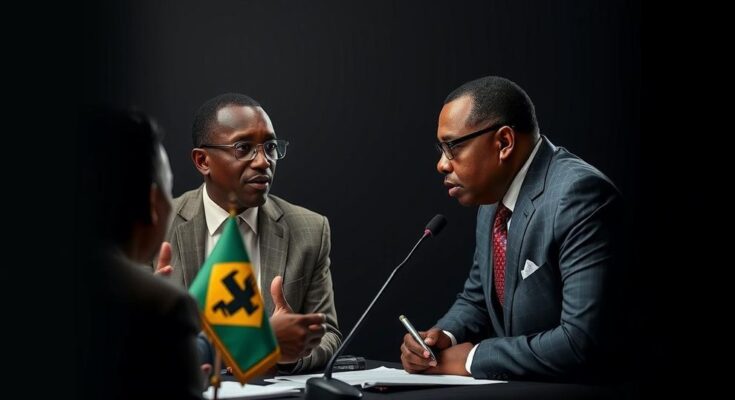South Sudan’s transition period has been extended until February 2027, delaying its first general elections until December 2026. UN Special Representative Nicholas Haysom expressed concern over the stagnant political progress and the resultant frustration among the South Sudanese populace. Urgent action is needed from leaders to implement agreements and alleviate the humanitarian crisis exacerbated by violence and external conflicts.
The recent decision to prolong the transitional period in South Sudan and delay the country’s long-awaited elections has sparked significant concern. United Nations Special Representative Nicholas Haysom addressed the Security Council, articulating that the postponement represents not just another extension but a regrettable setback for the South Sudanese populace, who are experiencing frustration due to political inertia among their leaders. Originally scheduled for next month, the general elections will now take place in December 2026, with the transitional period extending to February 2027. South Sudan has grappled with turmoil since its independence in 2011, and civil strife erupted two years later, contributing to substantial loss of life and displacement. The 2018 Revitalized Peace Agreement aimed to restore peace, but recent developments have left citizens disheartened, and the urgency for political leaders to achieve consensus has been underscored by Haysom. Despite ongoing dialogues among various stakeholders, critical progress towards the implementation of agreements appears stagnant. Haysom emphasized that the transition’s fourth extension poses a time-sensitive challenge that must be addressed now to avert analogous issues in December 2026. He called upon the political elite and the international community to collaborate effectively in order to deliver lasting peace and the democratic processes that the South Sudanese deserve. The UN Mission in South Sudan has recognized several immediate benchmarks for attention, including improving civic education and facilitating voter registration efforts. The humanitarian crisis in South Sudan remains critical, compounded by local violence and the impact of conflicts in neighboring Sudan. Haysom reported on increasing violence and the strain on humanitarian efforts, as the region continues to experience flooding and food insecurity, necessitating urgent international support.
South Sudan, the world’s youngest nation, achieved independence from Sudan in 2011. However, the country descended into civil war in 2013, primarily due to power struggles between President Salva Kiir and Vice-President Riek Machar. A peace deal in 2018, known as the Revitalized Agreement, sought to restore stability and set a path for democratic elections. However, prolonged political dysfunction and the recent announcement of delayed elections have prompted criticism regarding leaders’ commitment to effective governance and peace implementation, leading to widespread civilian dissatisfaction.
In conclusion, the continuing postponement of elections in South Sudan has been deemed regrettable, particularly in light of the public’s yearning for democratic governance and stability. The international community, alongside local leaders, must expedite their efforts to implement the Revitalized Peace Agreement and address immediate benchmarks. Failure to do so risks further disenchantment among the South Sudanese people and prolongs the cycle of violence and humanitarian distress. Remarkably, the future trajectory of South Sudan hinges on the decisive actions taken during this critical period.
Original Source: www.miragenews.com




